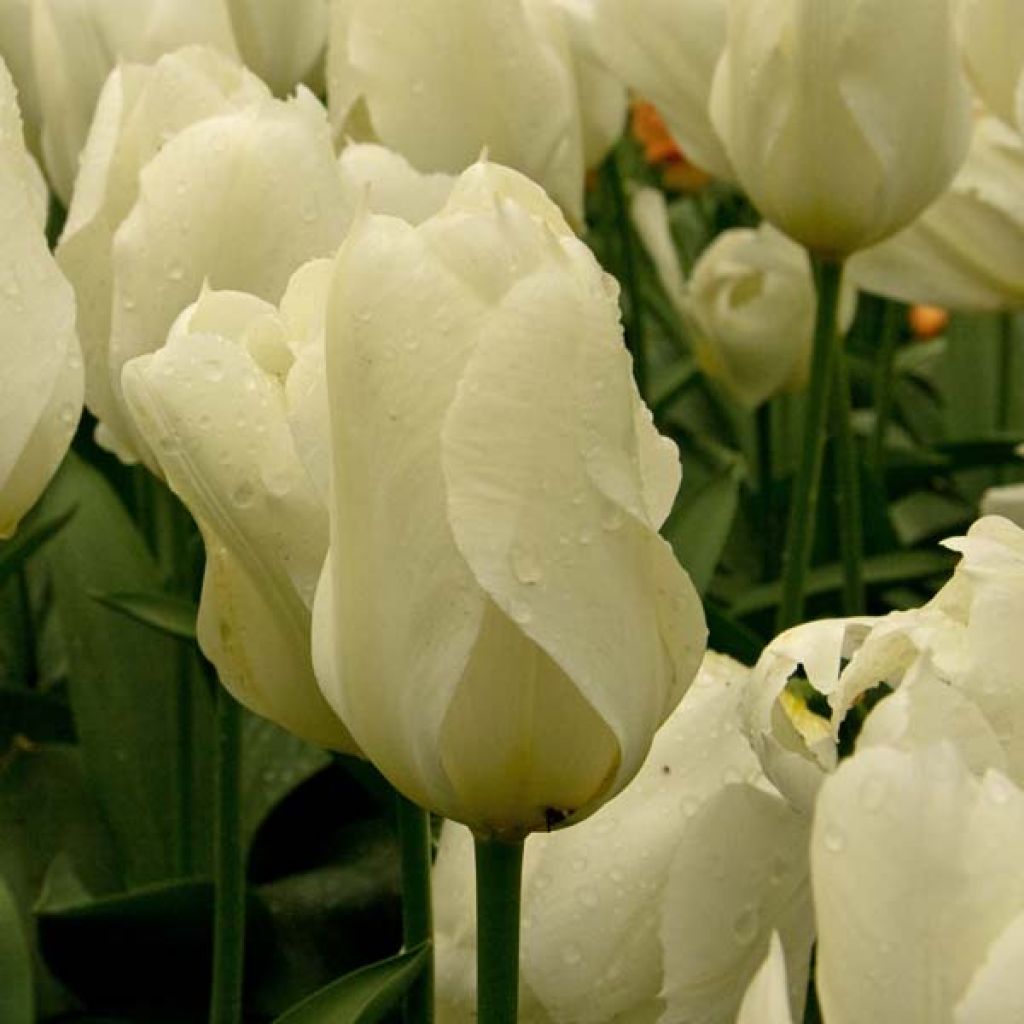

Tulipa fosteriana Purissima
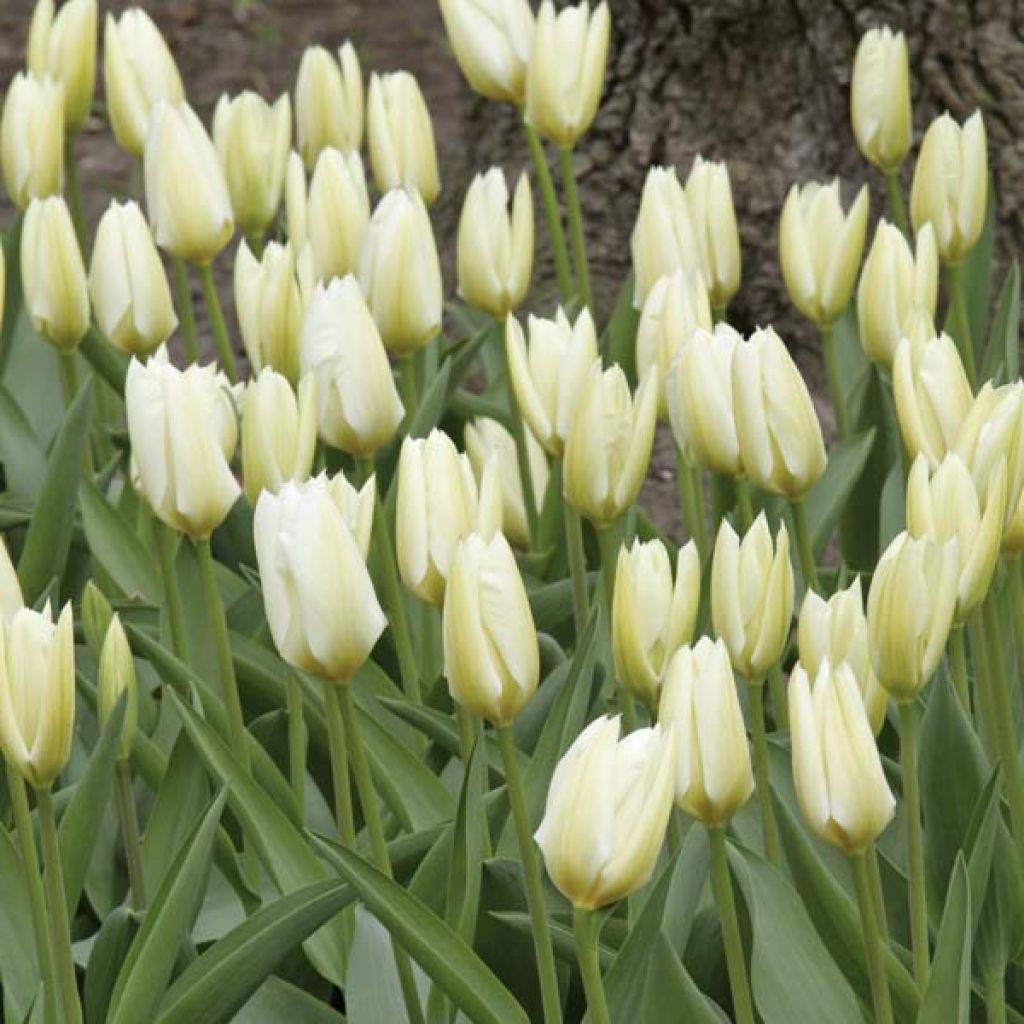

Tulipa fosteriana Purissima
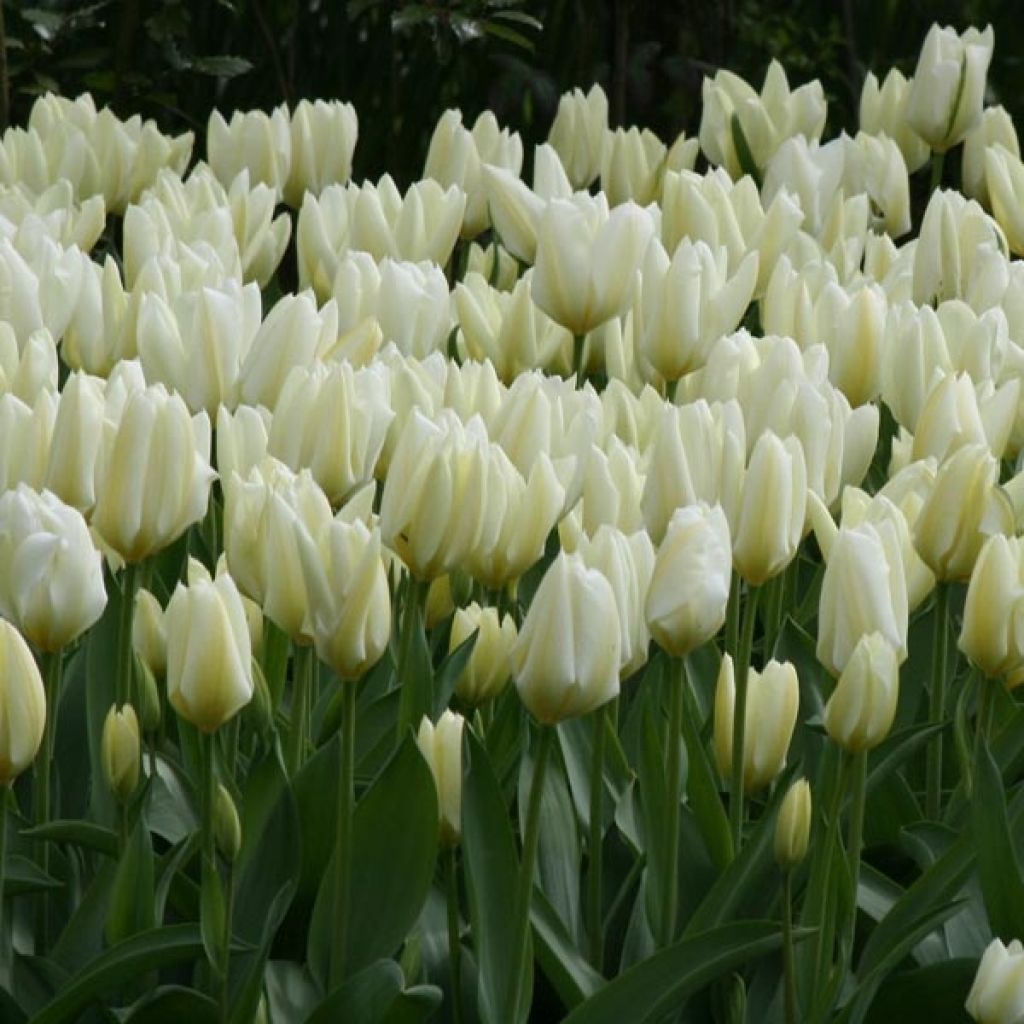

Tulipa fosteriana Purissima
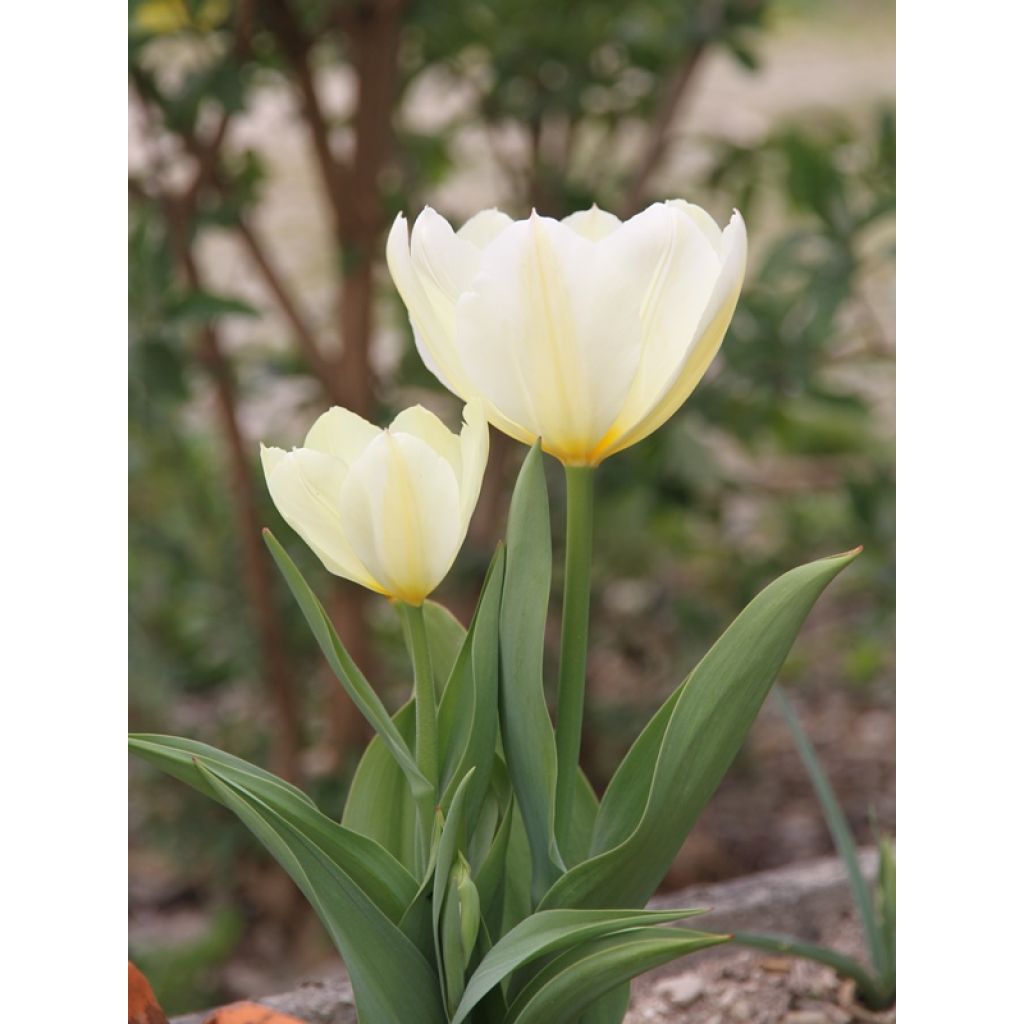

Tulipa fosteriana Purissima
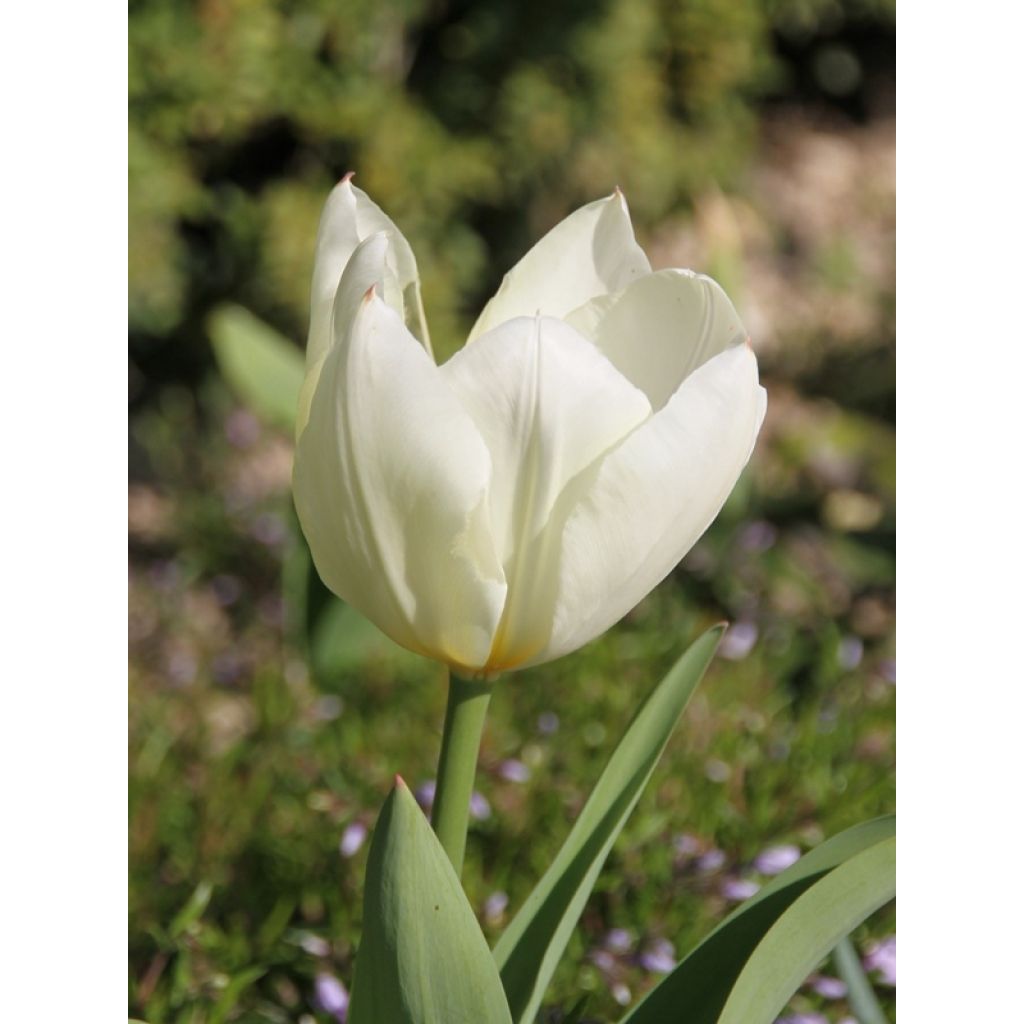

Tulipa fosteriana Purissima
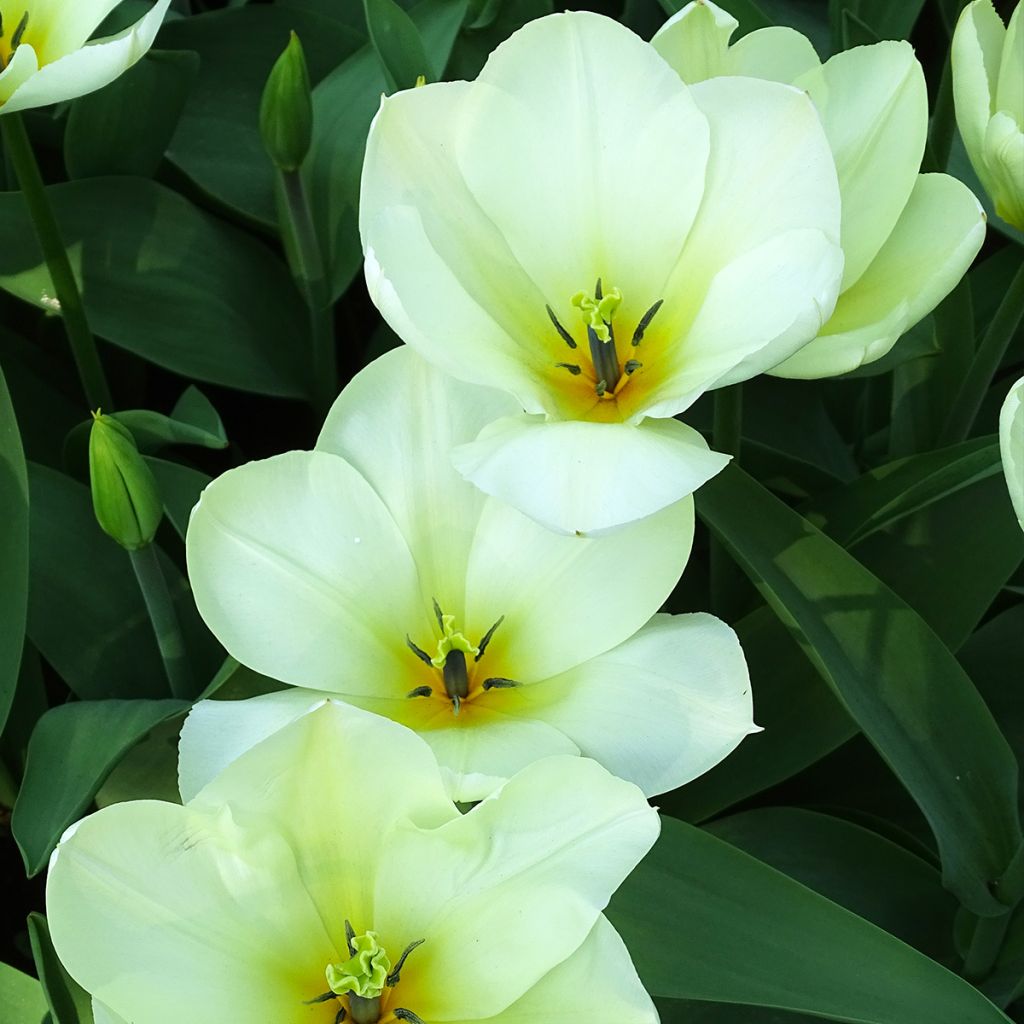

Tulipa fosteriana Purissima
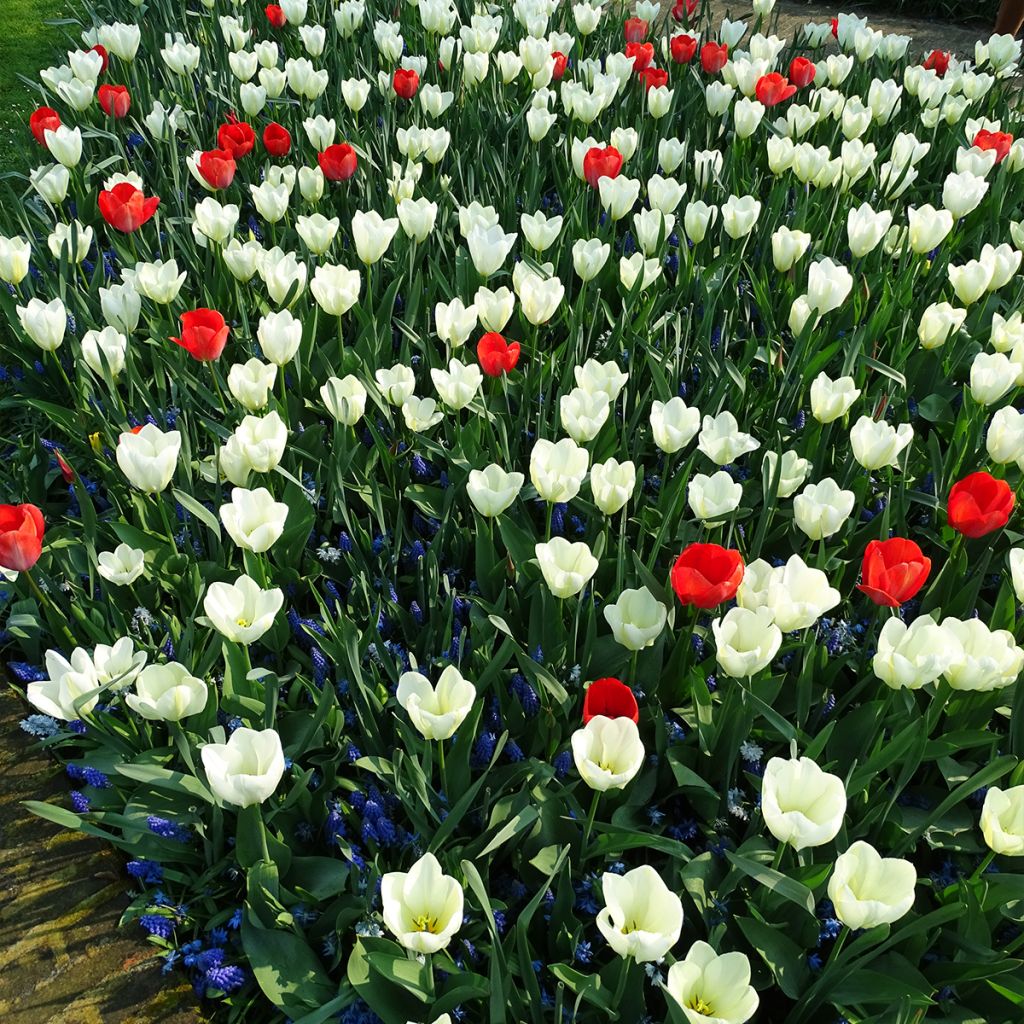

Tulipa fosteriana Purissima
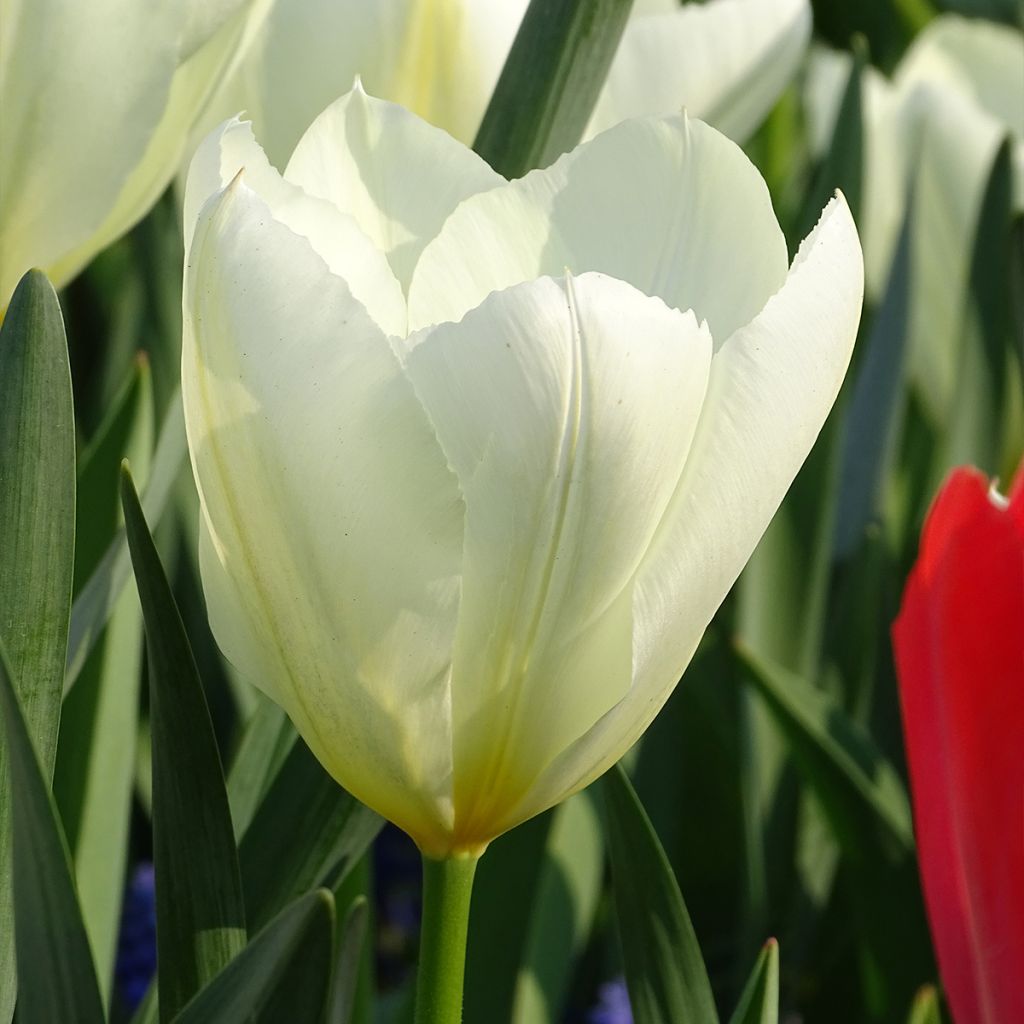

Tulipa fosteriana Purissima
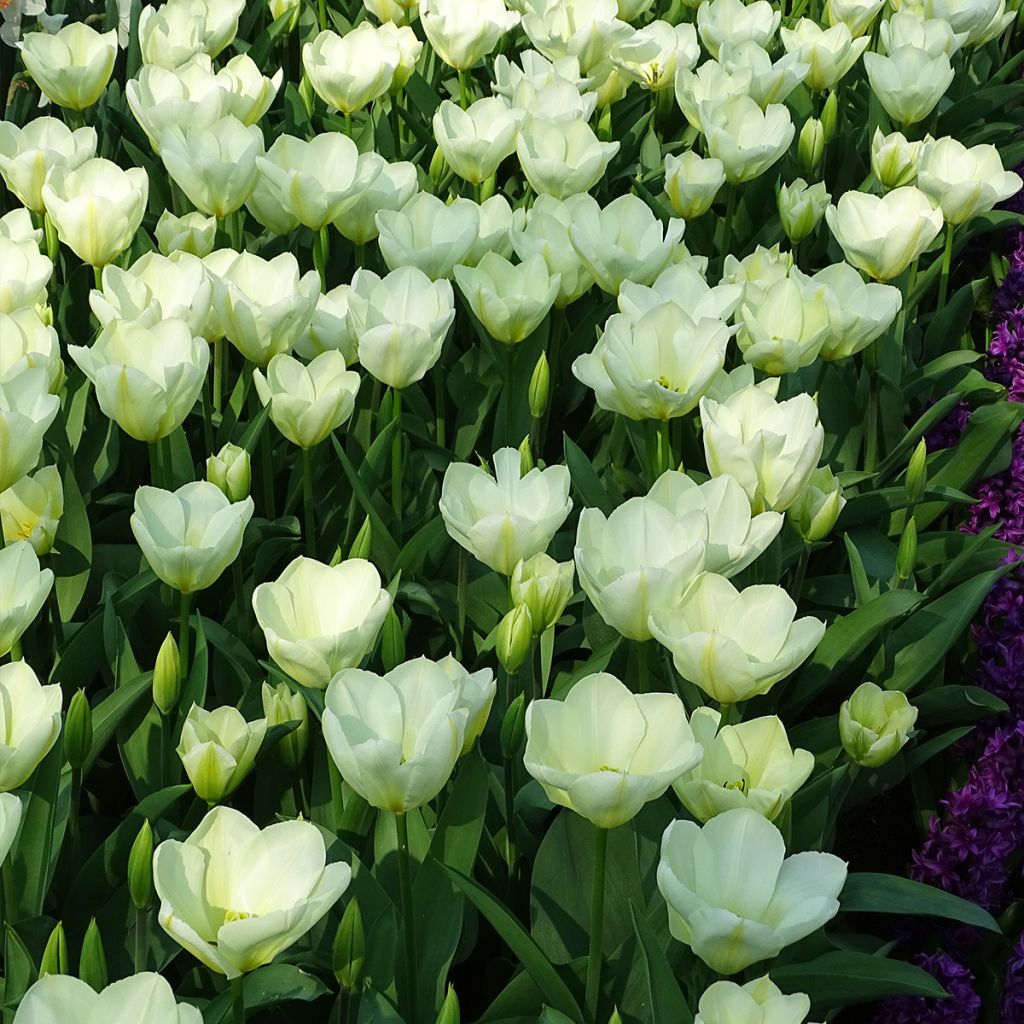

Tulipa fosteriana Purissima
Tulipa fosteriana Purissima
Tulipa fosteriana Purissima
Tulip 'Purissima'
Second spring and a profusion of beautiful white flowers in the flower beds. Long flowering with a delightfully elegant touch.
Réjane , 05/04/2022
This plant carries a 6 months recovery warranty
More information
We guarantee the quality of our plants for a full growing cycle, and will replace at our expense any plant that fails to recover under normal climatic and planting conditions.
From €5.90 for pickup delivery and €6.90 for home delivery
Express home delivery from €8.90.


Does this plant fit my garden?
Set up your Plantfit profile →
Description
Tulip fosteriana 'Purissima' is an old variety. It is a classic with evanescent flowers, which are pearly cream-white, crossed by a streak of light at the heart. Very resistant, robust, and undemanding, it will faithfully return for many years without degenerating. It is also one of the first to bloom. It is wonderful in flower beds, borders, and bouquets.
Tulipa fosteriana is a very hardy botanical species originating from Turkestan. Tulips derived from T. fosteriana belong to division 13 and are reliable performers: they are among the first tulips to flower, sometimes as early as March 15th, and they naturalise easily, so there is no need to replace them regularly. 'Purissima', also known as T. 'White Emperor', produces strong but flexible stems 35 to 40cm (14 to 16in) tall when in bloom. They bear a pale-yellow bud at their tip, opening into a large, elongated cup-shaped pearly-white flower, which opens and spreads in the sun to reveal a small golden heart. The flower fades beautifully, opening very widely, then gracefully retreating by shedding its petals one by one in the wind. The foliage is light green and vibrant. It is deciduous in summer.
Tulips from the Fosteriana Group work well in flower beds and borders. The taller varieties are ideal for bouquets. Their sparkling yet elegant colours pair well with blue hyacinths, grape hyacinths, forget-me-nots, and with other tulips. When designing your flower beds, you must consider the height and flowering period of the tulips, as these parameters can vary significantly from one cultivar to another. It is wise to plant extra bulbs for bouquets, as they make gorgeous cut flowers that last a long time in a vase.
About botanical species
Tulip species are found throughout most of the Old World, from Western Europe to China and Japan, including Eastern Europe, Asia Minor, and Central Asia. Their distribution range also includes North Africa and the Indian subcontinent. The centre of diversity for the genus is in the Pamir and Hindu Kush mountains and the steppes of Kazakhstan.
There are various wild species, many of which are endangered. These include large adventive tulips from cultivated fields, the most well-known being the Agen tulip (Tulipa agenensis), as well as small tulips found in wooded areas or among rocks in the mountains. In cultivation, they are called "botanical tulips", and one of the most common is the wild tulip (T. sylvestris), which used to often grow sheltered by vines and whose subspecies, australis, is known as the southern tulip.
Report an error about the product description
Plant habit
Flowering
Foliage
Botanical data
Tulipa
fosteriana
Purissima
Liliaceae
Tulip 'Purissima'
Cultivar or hybrid
Planting and care
Plant 'Purissima' bulbs as soon as possible after receiving them in well-drained soil. Loosen the soil deeply. Plant at a depth of 15cm (6in) (the bulbs should be covered with twice their height in soil). Space the bulbs a few centimetres apart, making sure they do not touch. Choose a sunny exposure for better flowering. Cut the flower stalks after flowering and let the leaves dry completely before cutting them. After flowering, their foliage becomes unsightly, so we recommend planting heuchera, tiarella, brunnera, bleeding heart, or Euphorbia cyparissia at the forefront of your flower beds. Their foliage will enhance the colours of your tulips, and will elegantly conceal the tulip's yellowed leaves.
Planting period
Intended location
Care
-
, onOrder confirmed
Reply from on Promesse de fleurs
Haven't found what you were looking for?
Hardiness is the lowest winter temperature a plant can endure without suffering serious damage or even dying. However, hardiness is affected by location (a sheltered area, such as a patio), protection (winter cover) and soil type (hardiness is improved by well-drained soil).

Photo Sharing Terms & Conditions
In order to encourage gardeners to interact and share their experiences, Promesse de fleurs offers various media enabling content to be uploaded onto its Site - in particular via the ‘Photo sharing’ module.
The User agrees to refrain from:
- Posting any content that is illegal, prejudicial, insulting, racist, inciteful to hatred, revisionist, contrary to public decency, that infringes on privacy or on the privacy rights of third parties, in particular the publicity rights of persons and goods, intellectual property rights, or the right to privacy.
- Submitting content on behalf of a third party;
- Impersonate the identity of a third party and/or publish any personal information about a third party;
In general, the User undertakes to refrain from any unethical behaviour.
All Content (in particular text, comments, files, images, photos, videos, creative works, etc.), which may be subject to property or intellectual property rights, image or other private rights, shall remain the property of the User, subject to the limited rights granted by the terms of the licence granted by Promesse de fleurs as stated below. Users are at liberty to publish or not to publish such Content on the Site, notably via the ‘Photo Sharing’ facility, and accept that this Content shall be made public and freely accessible, notably on the Internet.
Users further acknowledge, undertake to have ,and guarantee that they hold all necessary rights and permissions to publish such material on the Site, in particular with regard to the legislation in force pertaining to any privacy, property, intellectual property, image, or contractual rights, or rights of any other nature. By publishing such Content on the Site, Users acknowledge accepting full liability as publishers of the Content within the meaning of the law, and grant Promesse de fleurs, free of charge, an inclusive, worldwide licence for the said Content for the entire duration of its publication, including all reproduction, representation, up/downloading, displaying, performing, transmission, and storage rights.
Users also grant permission for their name to be linked to the Content and accept that this link may not always be made available.
By engaging in posting material, Users consent to their Content becoming automatically accessible on the Internet, in particular on other sites and/or blogs and/or web pages of the Promesse de fleurs site, including in particular social pages and the Promesse de fleurs catalogue.
Users may secure the removal of entrusted content free of charge by issuing a simple request via our contact form.
The flowering period indicated on our website applies to countries and regions located in USDA zone 8 (France, the United Kingdom, Ireland, the Netherlands, etc.)
It will vary according to where you live:
- In zones 9 to 10 (Italy, Spain, Greece, etc.), flowering will occur about 2 to 4 weeks earlier.
- In zones 6 to 7 (Germany, Poland, Slovenia, and lower mountainous regions), flowering will be delayed by 2 to 3 weeks.
- In zone 5 (Central Europe, Scandinavia), blooming will be delayed by 3 to 5 weeks.
In temperate climates, pruning of spring-flowering shrubs (forsythia, spireas, etc.) should be done just after flowering.
Pruning of summer-flowering shrubs (Indian Lilac, Perovskia, etc.) can be done in winter or spring.
In cold regions as well as with frost-sensitive plants, avoid pruning too early when severe frosts may still occur.
The planting period indicated on our website applies to countries and regions located in USDA zone 8 (France, United Kingdom, Ireland, Netherlands).
It will vary according to where you live:
- In Mediterranean zones (Marseille, Madrid, Milan, etc.), autumn and winter are the best planting periods.
- In continental zones (Strasbourg, Munich, Vienna, etc.), delay planting by 2 to 3 weeks in spring and bring it forward by 2 to 4 weeks in autumn.
- In mountainous regions (the Alps, Pyrenees, Carpathians, etc.), it is best to plant in late spring (May-June) or late summer (August-September).
The harvesting period indicated on our website applies to countries and regions in USDA zone 8 (France, England, Ireland, the Netherlands).
In colder areas (Scandinavia, Poland, Austria...) fruit and vegetable harvests are likely to be delayed by 3-4 weeks.
In warmer areas (Italy, Spain, Greece, etc.), harvesting will probably take place earlier, depending on weather conditions.
The sowing periods indicated on our website apply to countries and regions within USDA Zone 8 (France, UK, Ireland, Netherlands).
In colder areas (Scandinavia, Poland, Austria...), delay any outdoor sowing by 3-4 weeks, or sow under glass.
In warmer climes (Italy, Spain, Greece, etc.), bring outdoor sowing forward by a few weeks.


































